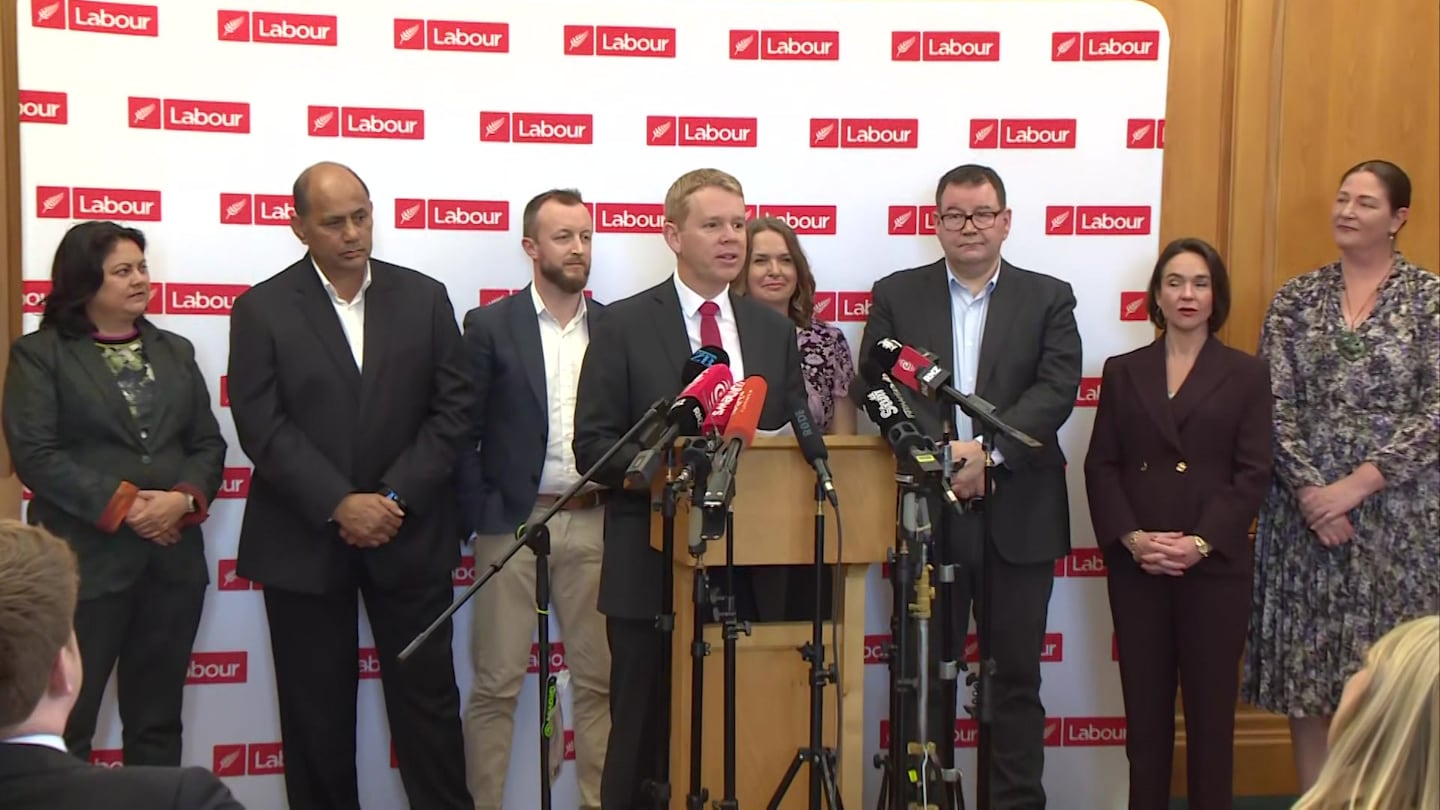Former Māori Development Minister, Willie Jackson will lead Labour’s Māori campaign in opposition as the highest-ranked Māori member in caucus.
He will be the opposition spokesperson for Māori development, broadcasting and employment, the portfolios he held as minister until last month as well as associate housing and associate workplace relations and safety.
However, unlike previous years where Kelvin Davis occupied the party’s number two spot, Jackson is placed fifth in the caucus and will be joined in the top 10 only by Willow-Jean Prime who will be the spokesperson for children and youth and Māori education.
Former defence minister Peeni Henare will be Labour’s spokesperson in that portfolio and picked up sport and recreation while retaining an associate role within health. Jo Luxton will have agriculture, biosecurity and rural communities within her scope. Among other Māori former Ministers, Kelvin Davis will be the spokesperson for Te Arawhiti and Treaty negotiations, Rino Tirikatene has the corrections and land Information portfolios while former Speaker Adrian Rurawhe will be the party’s spokesperson for Whānau Ora and associate Māori development.
The party’s 2023 election result is reflected in the number and list positions of i’s Māori MPs. After boasting a record number of Māori in caucus in the last term with 18 members, it now has just nine.
Labour had three Māori in the top 10 on the list leading into the election, it now has two and just five in the top 20 (Henare 12, Luxton 14 and Davis 20).
Portfolio spread
Now in opposition, Chris Hipkins has the ability to spread a number of portfolios across the entire caucus, allowing Manurewa MP Arena Williams to become a spokesperson for commerce and consumer affairs, building and construction and state-owned enterprises and new Ikaroa-Rāwhiti MP Cushla Tangaere-Manuel to take on tourism and hospitality, forestry and cyclone recovery jobs.
Hipkins (Ministerial Services, National Security and Intelligence) and Carmel Sepuloni Welfare, Pacific Peoples, Auckland Issues) remain as leader and deputy leader respectively, and boasts a top 10 of six women and four men and has moved climate change and children onto its front bench.
The rest of the top is made up of a number of former ministers from the previous government, Grant Robertson (finance and racing), Megan Woods (climate change and energy), Jackson, Ayesha Verrall (health, public service and Wellington), Kieran McAnulty (shadow leader of the House, housing, regional and local government), Willow-Jean Prime (children and youth), Ginny Andersen (police, violence prevention, social investment) and Jan Tinetti (education and women).
Hipkins said the experienced caucus was ‘energised’ and ready to get back to Parliament.
“I am incredibly proud and humbled to have this team alongside me as we take up the important job of opposition.
“The election didn’t go Labour’s way and we have work to do to make sure Kiwis know and feel that Labour backs them. I have absolute confidence our team will work with communities right across the country to build this support back.”
New Green MPs ready
Meanwhile, former Ngāti Wai chief executive Hūhana Lyndon is looking forward to getting life in Parliament after picking up the health, whānau ora, Māori development and forestry portfolios for the Green Party.
The health portfolio will see Lyndon (Ngāti Kahu, Ngāpuhi, Ngāti Wai, Ngāti Hine and Ngāti Whātua) square off against fellow Ngāti Wai and Ngāti Hine uri Shane Reti in what is set to be a crucial time for Māori health in particular as the government proposes to undo the Māori Health Authority and repeal smoke-free legislation.
As Māori davelopment and Whānau Ora spokesperson, Lyndon will attempt to hold former Ngāi Tai ki Tāmaki CEO Tama Potaka to account after he was announced as the minister for both portfolios earlier this week by Prime Minister Chris Luxon.
Co-leaders Marama Davidson and James Shaw confirmed the party’s spokespeople yesterday, with the allocation of portfolios across its largest caucus, of 15 MPs.
Davidson will continue to be the spokesperson for the prevention of family and sexual violence, child poverty Reduction, Conservation and Social Investment. Teanau Tuiono will hold the Education, Workplace Relations and Safety, National Security & Intelligence Pacific Region, Overseas Development Assistance and Space portfolios.
Other new Māori MPs in the party have also been allocated roles, with Wellington Central MP Tamatha Paul (Ngāti Awa, Waikato) taking housing, youth, Corrections, youth justice, police, courts and Wellington Issues. Darleen Tana will have oceans and fisheries, media and communications, science, innovation and technology, digitising government, Internal Affairs, overseas New Zealanders, small business and manufacturing, while Kahurangi Carter will be the party’s deputy musterer and spokesperson for children, arts, culture and heritage, disability, Zero waste, rainbow communities, community and voluntary sector, and Christchurch Issues.
Upholding te Tiriti
“Our team of Green MPs will do everything they can to make sure Aotearoa upholds te Tiriti and works for everyone,” Davidson said.
“They will bring their vast collective experience, knowledge and skills to shadow the Government’s ministers, to challenge them and hold them to account.
“As the third largest party in Parliament - and with our biggest caucus ever - the Green Party will stand strong on the issues that matter most to our people.”
Green Party co-leader James Shaw said: “Our team will stand up for an Aotearoa where everyone has enough to pay the rent and put food on the table, where our native wildlife and our oceans are protected for future generations, and where we face the climate crisis with the urgency it demands.
“This is an experienced Green Party caucus that reflects our priorities for Aotearoa and will provide a strong voice for our people and our planet.”




